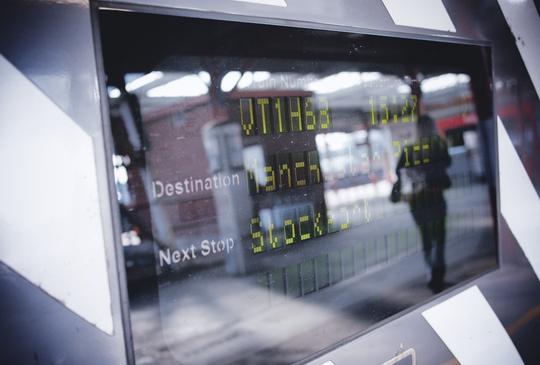
Looking East, looking West: beyond HS2
The critique that the UK is centralised to a ridiculous degree is well-evidenced, as is the adverse impact this is having on UK plc’s economy. This is largely because of the lack of many decent-sized cities outside of London. By far the strongest option to make good the deficit created by a capital city that many are already calling to be an ‘independent state’, would be to develop a 21st Century conurbation that runs from Liverpool to Leeds through Manchester.
However, whilst the Liverpool to Manchester section, despite local rivalry, already sees relatively fluid economic continuity, Manchester to Leeds is a black hole of economic inactivity - caused primarily by exceptionally poor connectivity. A better journey time of just 20 minutes between these two cities would add almost seven billion pounds a year. The train journey west meanwhile (the world’s first passenger railway line, lest we forget) is also poor, taking on average some 50 minutes.
Now imagine a high-speed line connecting the three centres. That would get you from Liverpool Lime Street to Piccadilly in just 15 minutes, and on to Leeds Central in another 20.
Now imagine a high-speed line connecting the three centres. That would get you from Liverpool Lime Street to Piccadilly in just 15 minutes, and on to Leeds Central in another 20. That could be transformational, also sorting out Liverpool’s call for an HS2 spur and potentially adding well over £10bn a year to the British economy.
The great majority of this economic benefit would be retained across that Northern belt. Given it would take just 80 miles of track - the ball park cost would be around £12bn, significantly less than London’s Crossrail and Crossrail 2.
Payback time
This proposal is not a substitute for HS2; the argument for which is as strong as ever, despite political sniping. HS2 is a sound investment both for passengers and freight, with a fifty-year payback period that will generate £5bn p.a. in additional tax revenue to the exchequer. The economic multipliers that will bring trade and people here are immense if we use it right.

The hesitation is typical of a national polity that decries a lack of long-term vision and a lack of critical infrastructure based on Victorian railways, but then is shocked to find there is a cost to actually changing these circumstances.
And the cost could be reduced and the economic benefits accelerated if we started building HS2 from both ends instead of just London up.
This would be the first serious contender in a century to create a new mass of economic agglomeration in the UK that could really aspire to match London.
However, whilst HS2 is essentially about maintaining a solid growth trajectory which would otherwise fall away because of constrained capacity, Liverpool-Manchester-Leeds is about creating a whole new economic axis. This would be the first serious contender in a century to create a new mass of economic agglomeration in the UK that could really aspire to match London.
And if you think building 420 miles of track in twenty years is beyond a modern nation, just consider that China has built 8,500 miles in five years and is in the process of doubling that. Indeed the ‘railway mania’ of the UK in the 1840’s, when thousands of miles of track laid were across the country in just one decade, is another benchmark of what can be achieved.
A thriving East-West urban axis, linked to the South with HS2, would be a powerful lighting rod for economic growth that would be a good thing not just for the North but for UK plc as a whole. Time then, to start fighting the battle of tomorrow and making the case for HS3.
Contributor Profile
Baron Frankal is Director of Strategy at the Manchester Airports Group. He previously held the same role at New Economy, leading on the conurbation's research and strategic functions to develop long-term sustainable growth for the second largest economy in the UK. Baron is a former City of London corporate lawyer and previously worked as a senior economist at the European Central Bank in Frankfurt before returning home.

